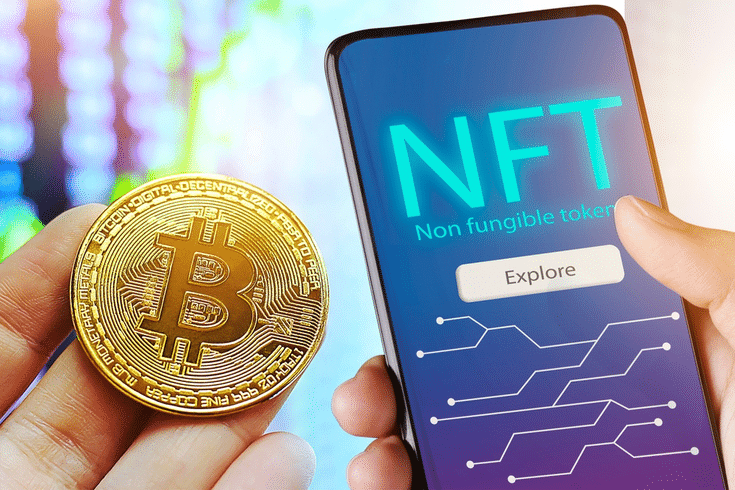What Wallets Are Required For NFT Transactions?

In order to conduct NFT transactions, it is essential to use a mechanism called a “wallet”. In order to trade NFTs, it is necessary to correctly understand this wallet, how NFTs work, and what legal restrictions apply in which cases.
In this article, we will provide an introduction to the wallet mechanism and the legal regulations pertaining to the wallet. These aspects are crucial for business operators who plan to engage in NFT transactions.
NFTs: Overview
NFT stands for Non-Fungible Token, which refers to a unique token that cannot be replaced by another.
The utilization of blockchain technology renders it arduous to manipulate or falsify digital data, ensuring the intrinsic value of digital content.
NFT vs. Crypto Assets (Virtual Currency) – Understanding the Difference

NFTs, or non-fungible tokens, are frequently likened to digital assets such as cryptocurrencies.
Crypto assets are interchangeable, in contrast to non-interchangeable NFTs.
Using the cryptocurrency bitcoin as an illustration, one’s single bitcoin and another person’s single bitcoin hold equivalent value and can be interchanged.
In contrast, the value of one’s own NFTs and NFTs owned by others differ greatly in the case of NFTs, and they cannot be replaced by one another.
When comparing crypto assets and NFTs as payment methods, it should be noted that crypto assets can be used as payment with the same value as long as the units are the same. However, NFTs have varying values and are used as a form of payment accordingly.
Essential Wallet for NFT Transactions
A wallet, as its name suggests, serves as a storage for crypto assets (virtual currency) and NFTs. In blockchain transactions, it holds a more significant role than the mere storage of currency.
In blockchain technology, two types of keys are utilized – public and private keys. To manage the private keys, a wallet is adopted as a mechanism.
There are several types of wallets available that serve different purposes. Apart from managing private keys, some wallets come with additional features such as the ability to check crypto asset balance and send crypto assets.
Wallets can also be classified based on their connectivity to the network.
In the world of digital finance, wallets linked to a network is commonly referred to as “hot wallets”. Conversely, wallets that are not linked to a network are known as “cold wallets”.
Private key used in NFT transactions
To comprehend the private key, it is imperative to comprehend the “public key cryptosystem” adopted in NFT and crypto assets blockchain.
Public key cryptography is a type of cryptographic system that makes use of two distinct keys, namely, a public key and a private key.
A public key is a type of encryption key used to secure data. This key is designed to be shared publicly without compromising the security of the data being protected.
A private key, on the other hand, is utilized for decrypting data that has been encrypted with a public key, as well as for electronic signatures when recording data on the blockchain. If a third party gains access to the private key, there is a risk that the encrypted data can be restored. In contrast to the public key, the private key must be safeguarded against leaks and be stored securely.
Hence, it is crucial to consider the method by which the wallet stores this private key.
Hot Wallet vs. Cold Wallet: Understanding the Difference
We will now outline the advantages and disadvantages of hot wallets and cold wallets.
Advantages and Disadvantages of Hot Wallets
Hot wallets allow for easy online management of NFTs and crypto assets as they are connected to the network. With a network connection, users can access their wallets from various devices to transfer crypto assets and view their balance.
However, as it can be connected to the network, there is a risk of potential leakage of private key information through hacking.
There is a risk that the terminal may be infected with a virus and result in the leakage of private key information or make the private key inoperable.
These are the drawbacks of hot wallets.
Advantages and Disadvantages of Cold Wallets
Cold wallets are not connected to the network, thus eliminating the potential risk of unauthorized access through hacking or virus infection.
However, due to its lack of network connectivity, it is unable to transfer funds electronically, resulting in a delay.
Furthermore, as the wallet cannot be accessed through various media using the network, there is a possibility of losing the wallet itself and not knowing the private key.
Connecting Wallet to NFT Marketplace
When recording data on the blockchain, it is necessaary to encrypt the data by applying a digital signature using the private key of the data creator.
To issue or purchase NFTs, it is imperative to link your wallet to the corresponding NFT marketplace. Considering that cryptocurrencies are commonly utilized in NFT transactions, wallets become a crucial component of NFT dealings.
Regulations on NFTs and Wallets

NFTs and Financial Regulations
In Japan, the laws and regulations regarding NFTs have not been fully established. The regulation of NFTs varies depending on their nature and content, as there are various types of NFTs.
For instance, if an NFT is capable of functioning as a means of payment and can be transferred amongst an undefined number of individuals, it will be governed by Japan’s Payment Services Act as a form of crypto asset. Furthermore, NFTs may be subject to financial regulations as electronic record transfer rights and prepaid payment instruments.
Classification of Wallet Service as Crypto Asset Exchange Business
Wallets are crucial for NFT transactions. However, if the wallet service is considered as a crypto asset exchange business, it will be subject to various regulations under the Payment Services Act of Japan.
With the implementation of the revised Payment Services Act in 2020, the definition of “Crypto Asset Exchange Business” has been expanded to include “custody business”. The latter pertains to the management of crypto assets on behalf of others.
According to Article 2, Paragraph 7 of the Payment Services Act of Japan, the following is prescribed.
(7)The term “crypto-asset exchange services” as used in this Act means carrying out any of the following acts in the course of trade, the term “exchange of crypto-assets, etc.” as used in this Act means the acts set forth in items (i) and (ii), and the term “management of crypto-assets” as used in this Act means the act set forth in item (iv):
(i)purchase and sale of a crypto-asset or exchange with another crypto-asset;
(ii)intermediary, brokerage or agency services for the act set forth in the preceding item;
(iii)management of users’ money, carried out by persons in connection with their acts set forth in the preceding two items; and
(iv)management of crypto-assets on behalf of another person (excluding cases where the relevant management in the course of trade is governed by special provisions of other Acts).
Custody companies will now be held to the same stringent regulations as cryptocurrency exchange companies.
If NFTs are considered as crypto assets based on their nature, then transactions involving NFTs could potentially be classified as part of the crypto asset exchange business. Therefore, it is important to exercise caution.
Wallets and Regulations for NFT Transactions
Up until now, we have presented the wallet mechanism that is fundamental to NFTs, as well as the laws and regulations governing NFTs and wallets for business operators who are contemplating NFT transactions.
Currently, the NFT market is expanding rapidly. When entering a new market, it is important to design a business model based on a proper understanding of NFT regulations.
It is advisable to seek the counsel of a lawyer who is knowledgeable in blockchain technology for NFT transactions.
Countermeasures Guidance from Our Office
Monolith Law Office is a highly specialized law firm with extensive knowledge in both IT, notably the Internet, and law. We offer comprehensive assistance to companies involved in crypto assets and blockchain. Monolith Law Office is a highly specialized law firm with extensive knowledge in both IT, notably the Internet, and law. We offer comprehensive assistance to companies involved in crypto assets and blockchain.
Category: IT





















